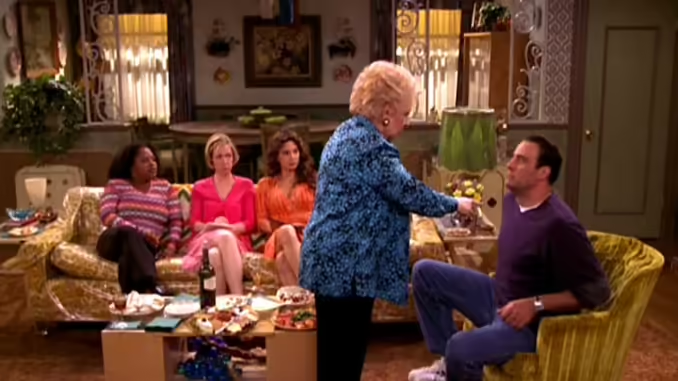
Everybody Loves Raymond: 5 Things It Gets Right About Italian-American Culture (& 5 Things That It Doesn’t)
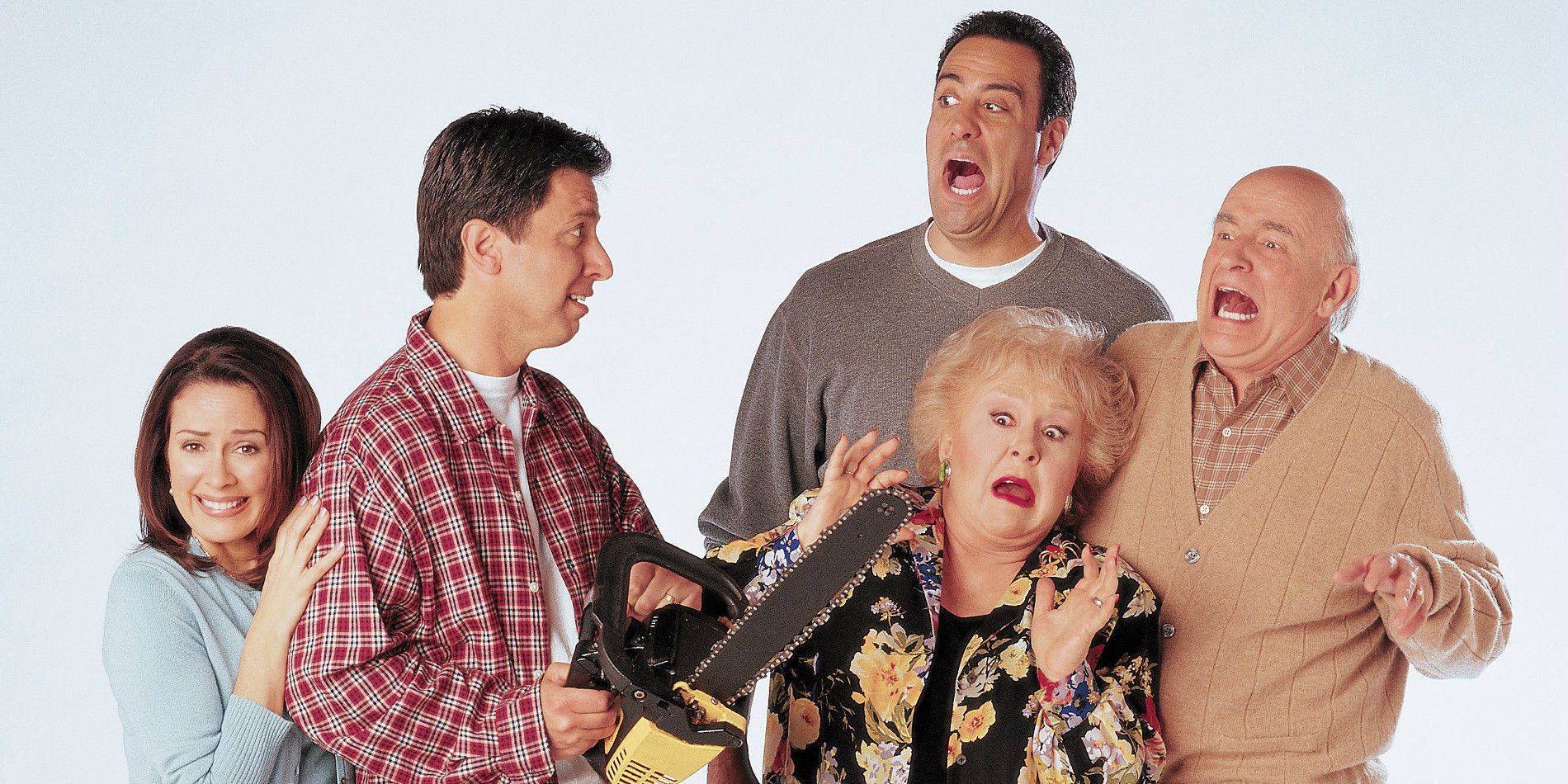
Everybody Loves Raymond was about life in an Italian-American family, and in some ways, it got it right. But in other ways, it totally missed the mark.
Everybody Loves Raymond was about life in an Italian-American family, and in some ways, it got it right. But in other ways, it totally missed the mark.
Everybody Loves Raymond featured The Barone family. A family of Italian origin, the Barones journeyed through their day-to-day lives and the storylines followed the intricacies of their relationships and family dynamics. Ray’s love for sports and Marie’s overbearing personality were all captured with a comedic twist, and fans connected to the show due to its relatable nature. Fans also got a kick out of watching Debra’s continuous struggles with her in-laws, and her complete inability to conjure up a home-cooked meal that was up to everyone’s standards.
This show was intended to capture the dynamics of a modern middle-class Italian-American family. There are some aspects of the family’s Italian heritage that Everybody Loves Raymond was very successful at embracing, while other representations of the culture didn’t quite resonate with fans.
They Got It Right: The Focus On Food
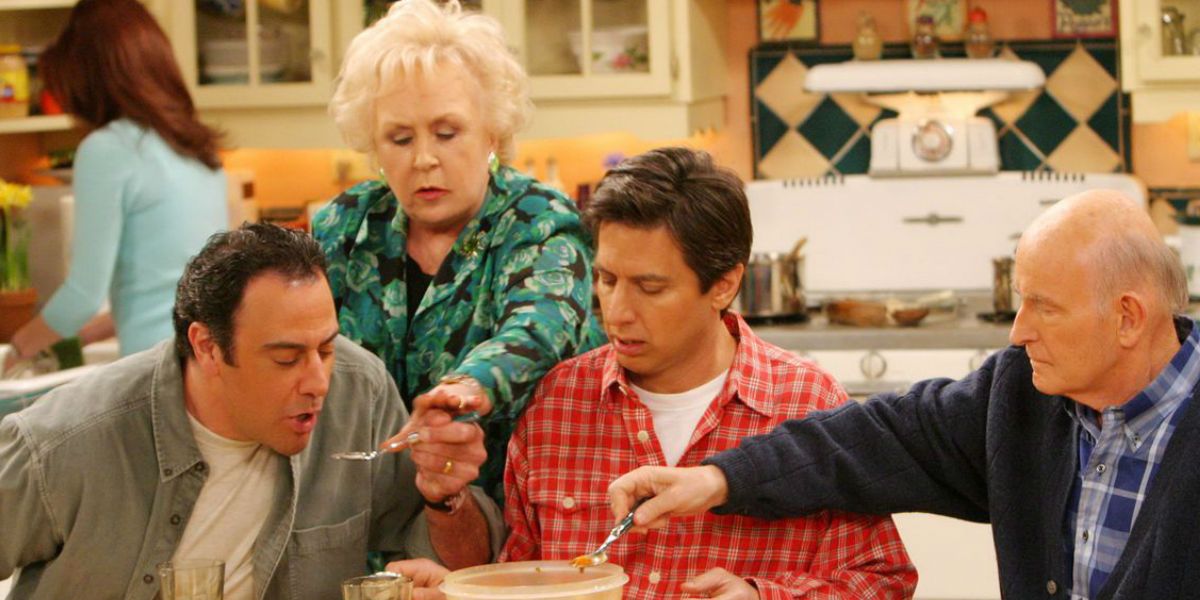
One undeniably successful representation of Italian-American culture is the focus that this show put on food. Fans with Italian bloodlines can attest to the fact that food fixes everything in a traditional Italian family, and there’s always an abundance of it! On the show, Marie Barone would often hover around her husband and children with offerings of food to heal their bad days.
The sitcom depicted the matriarch’s true measure of success as being dependent upon her ability to create home-cooked meals for her family. Domestic skills and nurturing qualities were key. As a perfect example of this, in one of Frank’s most hysterical episodes, he speaks to the family about his perception of life, and he states, “You want to know the meaning of life? You’re born, you go to school, you go to work, you die. Marie, cannoli!”
They Got It Wrong: No Authentic Cultural Experiences

MOST ITALIAN-AMERICAN FAMILIES RELATE TO THEIR CULTURE IN SOME WAY AS PART OF THEIR DAY-TO-DAY LIVES. THERE ARE CELEBRATORY MOMENTS THAT ARE DIRECTLY LINKED TO THEIR CULTURAL UPBRINGING, AND TO THE PRIDE ASSOCIATED WITH HAVING ITALIAN ROOTS. EVERYBODY LOVES RAYMOND FAILED TO DELIVER IN THIS AREA.
The focus was primarily put on the dynamics of the family relationships and the conflicting personalities within the Barone household. However, it was easy to forget the Italian heritage of the characters on the show. The sitcom was salt and peppered with hints of Italian references, but was not well-rooted in its delivery of Italian customs.
They Got It Right: The Very Involved Family
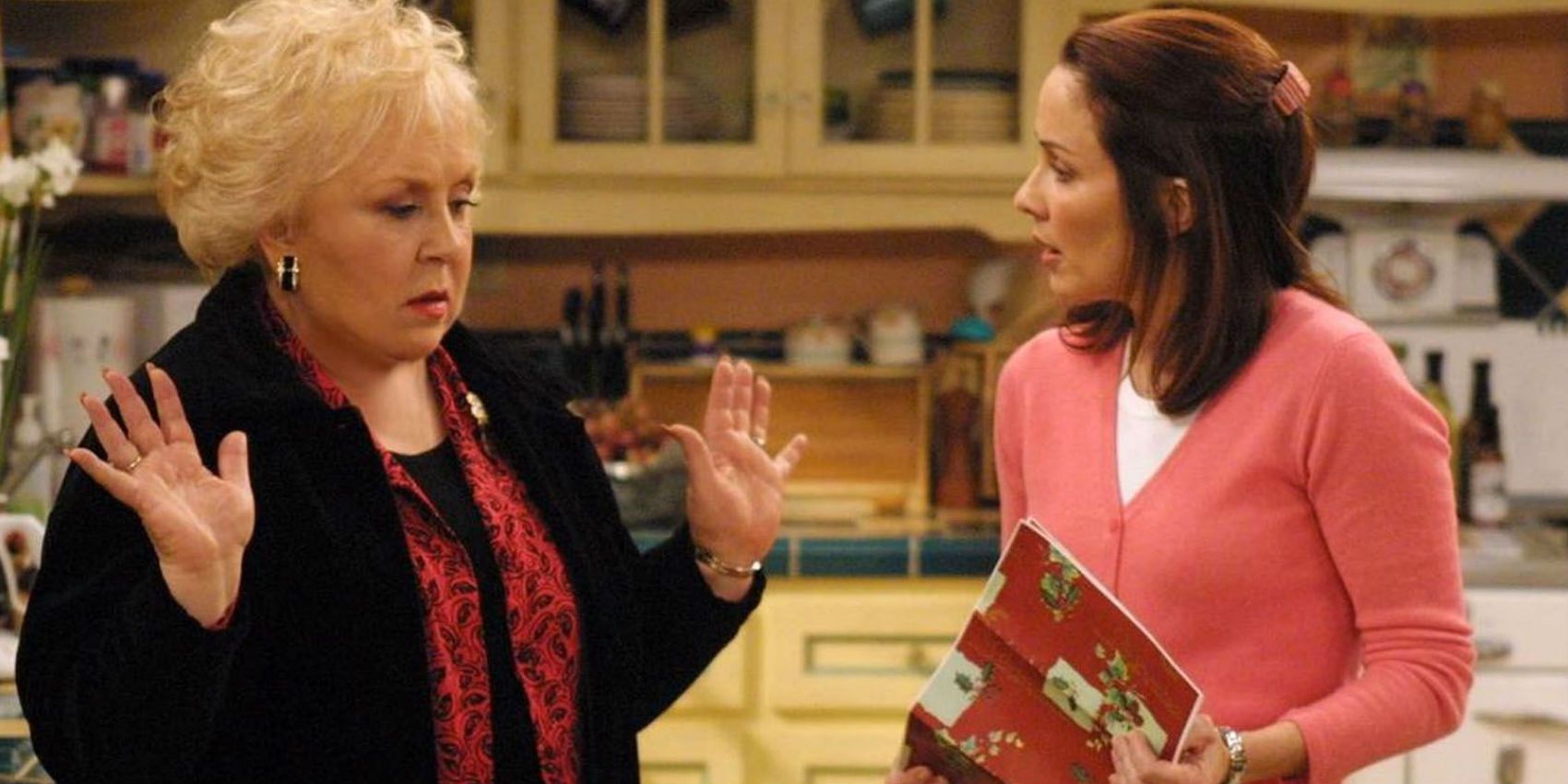
Debra and Marie in Everybody Loves Raymond
Italian-Americans tend to belong to large, all-encompassing families that are heavily involved in each others’ lives. This angle of the traditional Italian family dynamic was certainly well depicted on this show. While some families may be quiet and laid back, Italian families are known for being passionate, boisterous, and very involved in family dynamics and happenings.
In this sense, the Barone family very much lived up to Italian standards. Marie and Frank lived in close proximity to their sons and never knew any boundaries, which sometimes led to disastrous situations.
They Got It Wrong: The Depiction Of Men As Being Lazy
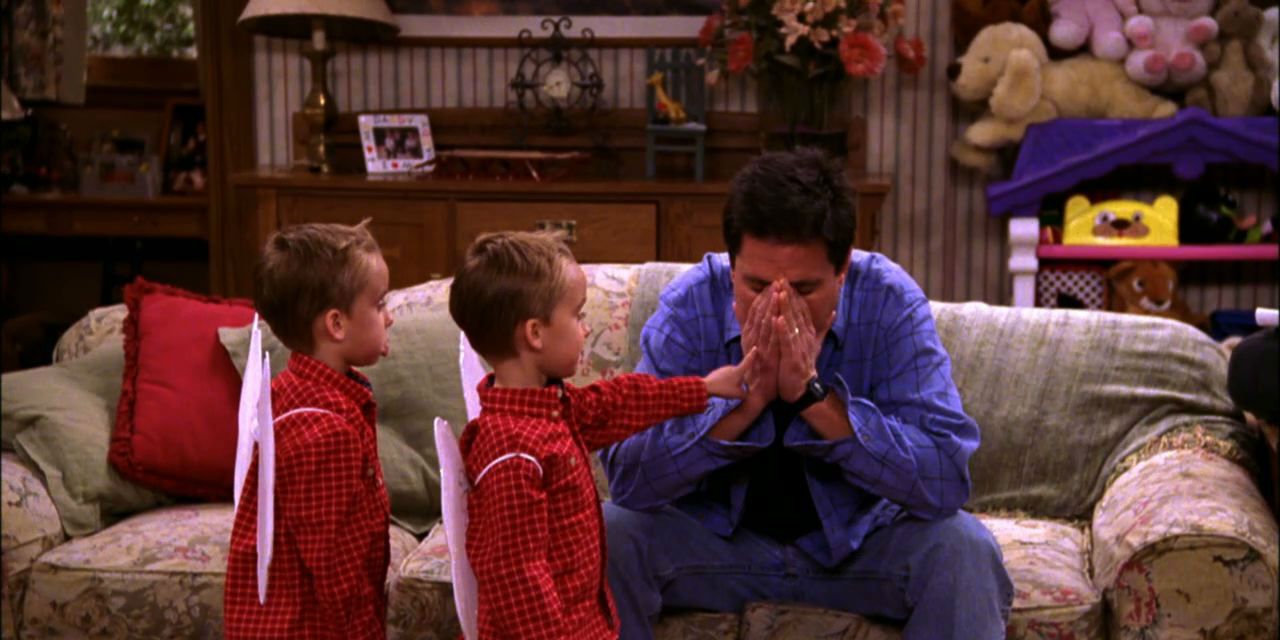
Character development is deeply important, and fans relate characters on television to their own real-life experiences. One aspect of Italian-American culture that Everybody Loves Raymond failed to properly portray was the role of the men in the family. Both Frank and Ray Barone were depicted as lazy men and both characters were also quick to remove themselves from family responsibilities. This is not at all indicative of the true Italian-American experience, making this an epic fail for the show’s creator, Phil Rosenthal.
Ray’s refusal to help his wife out in any way was also not the healthiest depiction of an Italian-American man, nor was Robert’s incessant need to rely and depend upon his parents to the degree he did.
They Got It Right: Ma Cooked And Cleaned
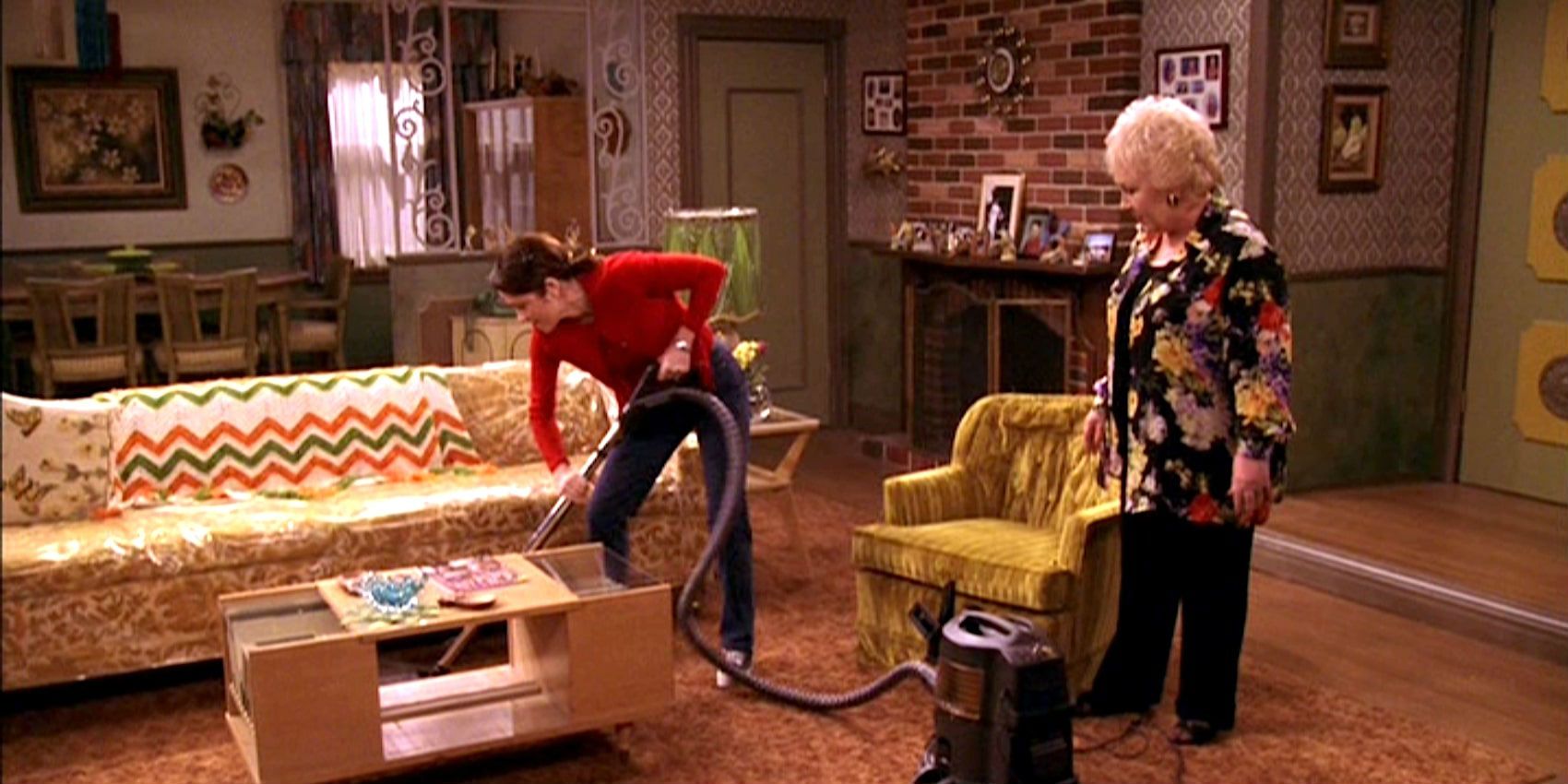
Most traditional Italian-American family gatherings involve the ladies of the house preparing home-cooked meals. While things are definitely changing, thank goodness, Italian family dinners are known to have hearty food available in abundance for all members to enjoy, with the onus on the women to both produce the meal, and also to clean up afterward.
Historically, gender-based roles tell a tale of men being the providers and women being the caregivers, responsible for domestic duties and child-rearing. Everybody Loves Raymond captures the essence of this traditional role in Marie Barone’s character in some of the best, most memorable episodes. She embodies the loving mother that dotes on her children to the point of being overbearing.
They Got It Wrong: Stefania Was Too Stereotypical
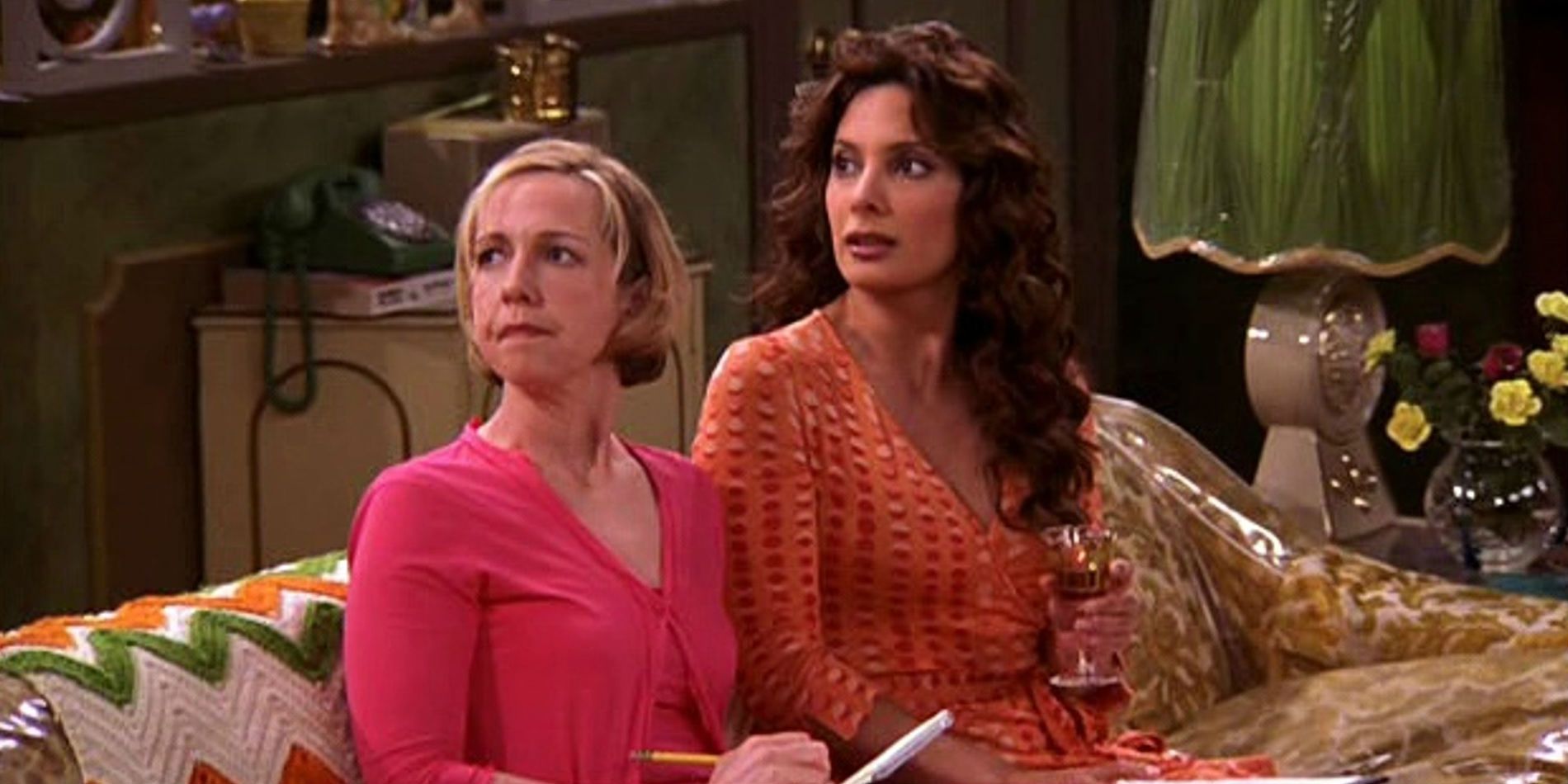
There’s a fine line between the depiction of cultural components within character development, and feeding into a stereotype. When it came to Stefania’s character, fans were up in arms about her character being too stereotypical.
There was a scene where supporting actor Signore Fogagnolo (Stefania’s father) catches Stefania and Robert about to make out in her room, and his reaction towards his adult daughter’s dating life depicted negative stereotypes of Italian men. He threatened the family and there were hints of mafia connections and intimidation. The Sopranos’ David Proval played the part of Stefania’s father, leading fans to believe the mafia-based mob-ties are typical in Italian families. The fairytale romance between the gorgeous gelato girl and Robert nearly ended in wedding bells.
They Got It Right: Plastic On The Couches
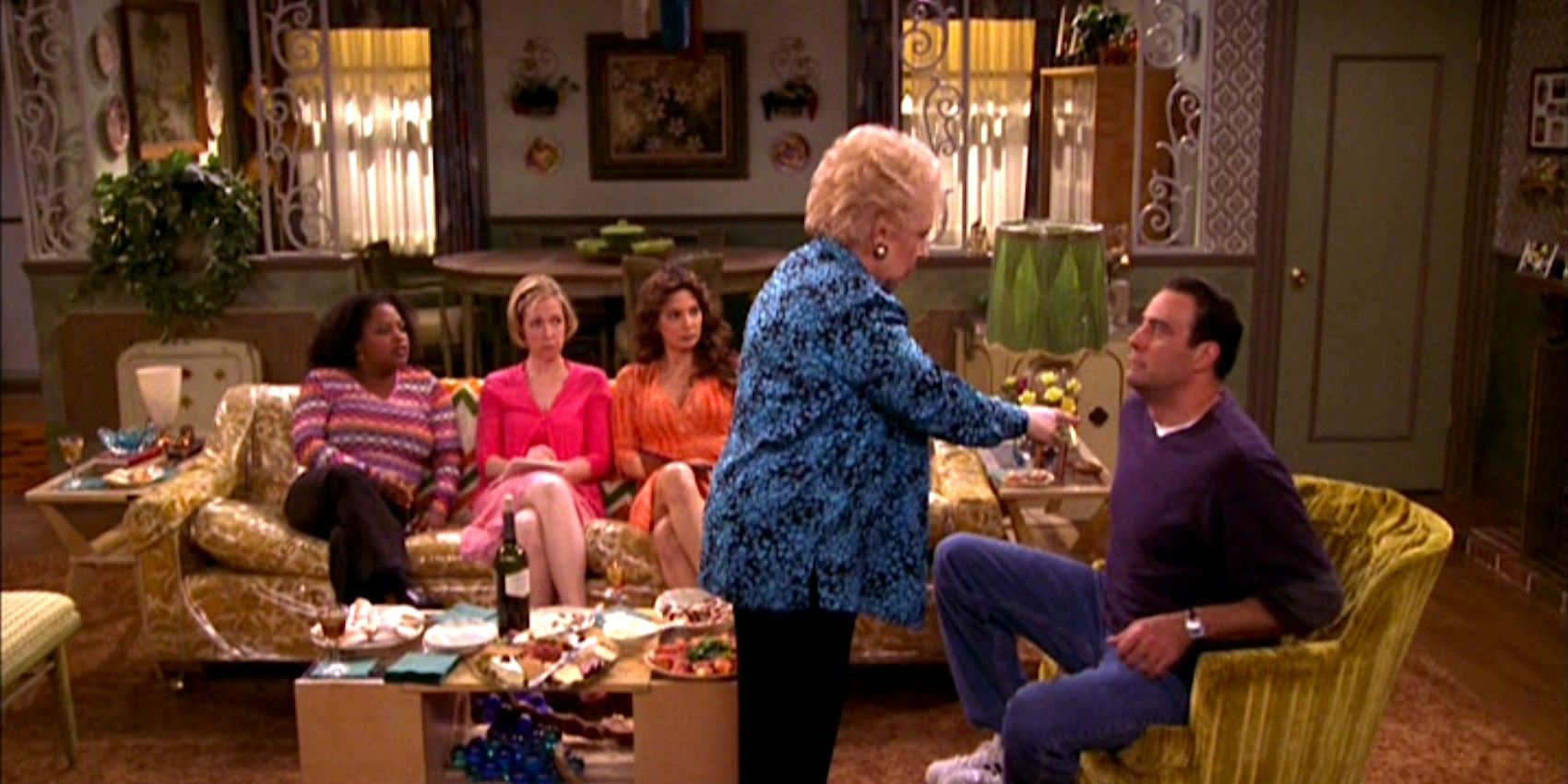
Everybody Loves Raymond Robert Marie intervention
This example is enough to make any Italian-American chuckle and roll their eyes in agreement. Let’s face it, most older generation European families wrapped their couches in plastic at some point or another in a valiant effort to preserve their furniture. This concept certainly wasn’t lost on Marie Barone.
Debra, belonging to a younger generation, didn’t embark on this plastic-protection adventure. However, coming from the older generation, Marie was a firm believer. There were many episodes where Ray would visit his parents’ house and the furniture would be plastic-wrapped – a tale of real-life in many Italian-American households.
They Got It Wrong: Ray’s Cultural Resistance To Italy
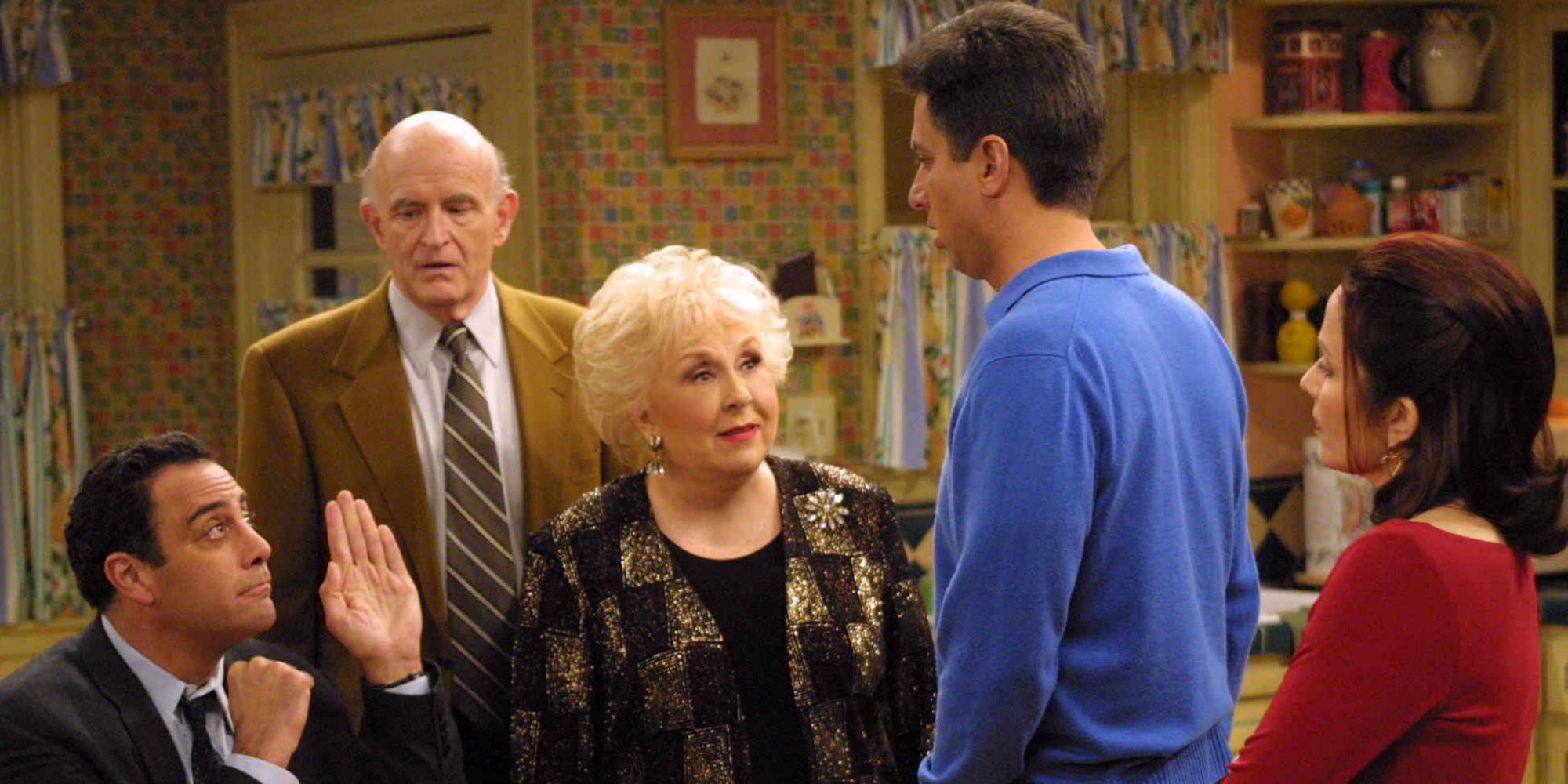
You’d be hard-pressed to find a true Italian that isn’t interested in visiting Rome, especially when the trip is free of charge! Ray Romano’s character had absolutely no desire to go to his homeland, and no interest in exploring his heritage.
During one particular episode, Marie Barone revealed that she had been dutifully been saving money for 45 years to be able to take her entire family on this trip. However, this concept was completely lost on Ray. He resisted the idea and showed absolutely no interest in going to his country of origin. Debra confronted Ray’s lack of interest in this two-week family vacation, to which Ray replied that he was “not interested in other cultures.”
They Got It Right: The Smothering By ‘Ma’
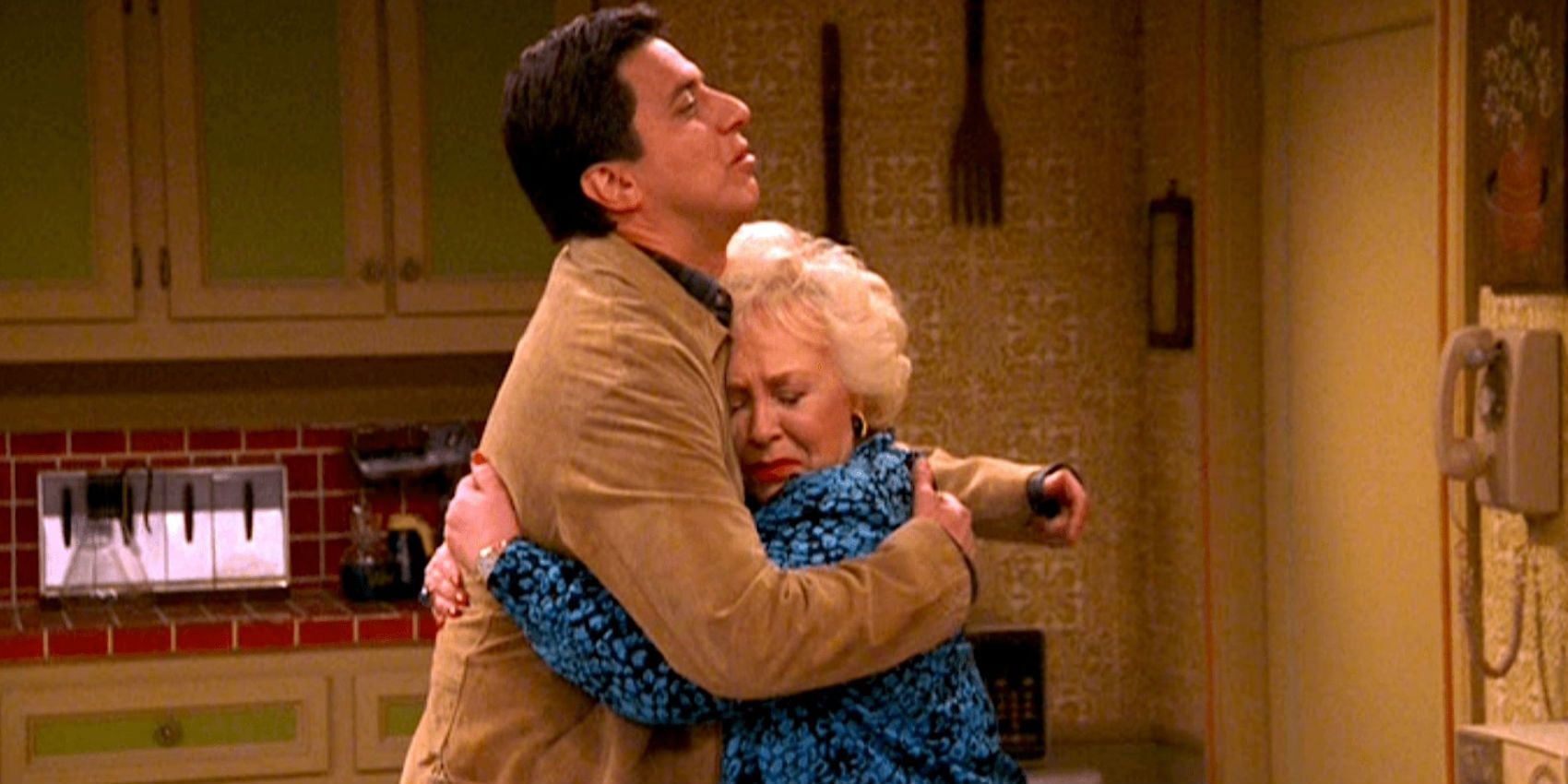
Raymond and his mom hugging each other in everybody loves raymond
It’s safe to admit that some Italian mothers have a teeny tiny issue letting go of their children and letting them experience their lives without parental interference. Marie Barone perfectly embodied the character of an Italian “ma” that just did not know when to butt out, interfering with the very best intentions.
This smothering characteristic as well-meaning is a true-to-form depiction of many Italian mothers. The producers of the show definitely hit the nail on the head with Marie being elbow-deep in the lives of her sons, and it hysterically captured the turmoil this caused in Debra’s life, and in Ray and Debra’s marriage.
They Got It Wrong: Stifling Roles
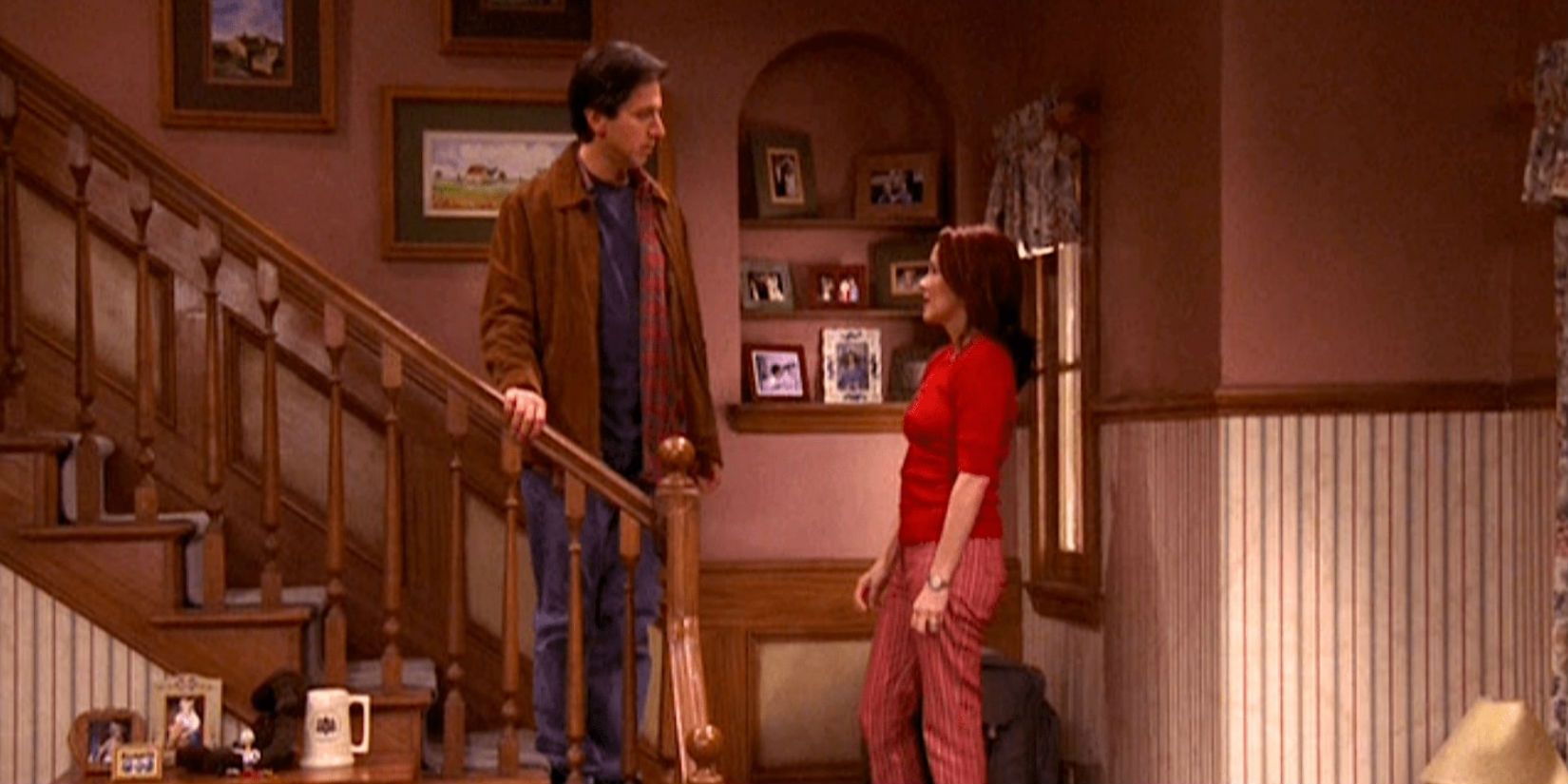
Ray and Debra on the stairs
In order to ensure the consistency and success of the storyline, most sitcoms and long-running shows depict some progression and role development, but Everybody Loves Raymond did not. This leads viewers to believe the culture didn’t evolve either, which is a gross misconception.
One of the most unfortunate examples of this is the fact that Debra had all the support available to her from her in-laws, and yet never went on to get a job or develop herself in any way outside of the home.
